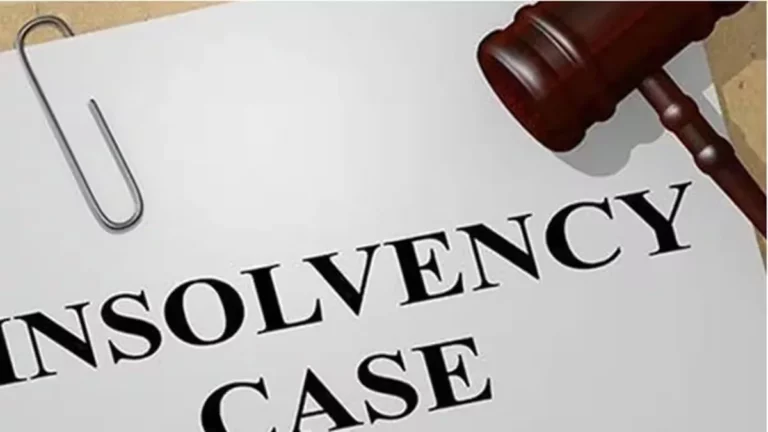From Crisis to Resolution: How Insolvency Lawyers Can Safeguard Your Financial Future
In today’s fast-paced and ever-changing world, financial crises can strike when we least expect them. Whether it’s the result of a personal setback or an economic downturn, finding yourself facing insolvency can be overwhelming and frightening. However, there is hope. Insolvency lawyers are experts in navigating the complex world of insolvency law and can help guide you through this challenging time. By understanding their role, recognizing the signs of financial crisis, and taking the necessary steps towards resolution, you can safeguard your financial future and emerge stronger than ever.
Understanding the Role of Insolvency Lawyers
Insolvency lawyers are legal professionals who specialize in helping individuals and businesses navigate the complexities of insolvency law. They play a crucial role in assisting clients throughout the entire insolvency process, from assessing their financial situation to developing strategies for resolving debt. By working closely with clients, insolvency lawyers Canberra provide expert guidance and support, helping them make informed decisions and regain control of their financial futures.
When individuals or businesses find themselves in financial distress, it can be an overwhelming and stressful experience. Insolvency lawyers understand the challenges their clients face and are equipped with the knowledge and skills to provide effective solutions. They have a deep understanding of insolvency law and keep up-to-date with any changes or developments in the field. This expertise allows them to navigate the complex legal landscape and advocate for their clients’ best interests.
The Basics of Insolvency Law
Insolvency law encompasses a broad range of legal principles and regulations designed to address financial distress. It governs the procedures and processes for dealing with insolvency, including bankruptcy, liquidation, and reorganization. Understanding the basics of insolvency law is essential for both insolvency lawyers and individuals facing financial crisis. It sets the foundation for effective communication and collaboration between legal professionals and clients.
Insolvency lawyers are well-versed in the intricacies of insolvency law. They understand the different types of insolvency proceedings and the specific requirements and timelines associated with each. This knowledge allows them to guide their clients through the necessary steps and ensure compliance with legal obligations. Whether it’s filing for bankruptcy, negotiating with creditors, or exploring alternative debt resolution options, insolvency lawyers provide invaluable support and guidance.
Key Responsibilities of an Insolvency Lawyer
An insolvency lawyer’s primary responsibility is to protect their client’s interests and help them achieve the best possible outcome in their financial crisis. They provide legal advice and guidance on matters such as bankruptcy filings, debt restructuring, and negotiations with creditors. Additionally, insolvency lawyers may represent clients in court proceedings and other legal forums, ensuring their rights are protected throughout the process.
One of the key responsibilities of an insolvency lawyer is to assess their client’s financial situation thoroughly. This involves analyzing their assets, liabilities, income, and expenses to determine the most appropriate course of action. Based on this assessment, the lawyer develops a tailored strategy that aligns with the client’s goals and objectives. They provide recommendations on the best approach to resolve debt and regain financial stability.
Furthermore, insolvency lawyers act as advocates for their clients, representing them in negotiations with creditors and other parties involved in the insolvency process. They work tirelessly to protect their clients’ rights and interests, ensuring fair treatment and equitable outcomes. This may involve challenging creditor claims, negotiating debt settlements, or seeking court approval for proposed reorganization plans.
Overall, insolvency lawyers play a vital role in helping individuals and businesses overcome financial challenges. Their expertise and guidance provide clients with the necessary tools to navigate the complexities of insolvency law successfully. By working closely with their clients, insolvency lawyers empower them to make informed decisions and take control of their financial futures.
The Journey from Financial Crisis to Resolution
Recovering from financial crisis is a journey that requires patience, perseverance, and professional guidance. Understanding the signs of financial crisis and taking proactive steps towards resolution are crucial in transforming your situation and securing your financial future.
Financial crises rarely happen overnight. There are often warning signs that indicate impending financial trouble. These signs can include mounting debt, difficulty making loan payments, missed mortgage payments, or the threat of legal action by creditors. Recognizing these signs early on can help you take action before the situation worsens.
One common sign of a financial crisis is the accumulation of debt. As bills pile up and payments become increasingly difficult to make, individuals may find themselves sinking deeper into financial trouble. This can lead to a cycle of borrowing more money to cover existing debts, creating a never-ending cycle of financial stress.
Another warning sign is the inability to make loan payments. Whether it’s a mortgage, car loan, or personal loan, falling behind on payments can have serious consequences. Late fees, increased interest rates, and even the risk of repossession or foreclosure can add to the already overwhelming burden of financial crisis.
Missed mortgage payments are particularly alarming as they can lead to the loss of one’s home. For many individuals and families, their home is their most valuable asset, and the thought of losing it can be devastating. This is why it is crucial to address financial issues as soon as possible to prevent the situation from reaching this point.
Legal action by creditors is another red flag that should not be ignored. When creditors threaten to take legal action, it means that they have exhausted other options and are now seeking legal recourse to recover the money owed to them. This can result in wage garnishment, asset seizure, or even bankruptcy proceedings.

Steps Towards Financial Resolution
Once you’ve identified that you’re facing a financial crisis, it’s essential to take immediate action. Consulting with an insolvency lawyer is a crucial first step. They can assess your financial situation, explore your options, and develop a personalized plan for resolving your debt. This may involve negotiating with creditors, restructuring your debts, or, in some cases, filing for bankruptcy. By taking these proactive steps towards resolution, you can regain control of your financial health.
An insolvency lawyer is a legal professional who specializes in helping individuals and businesses navigate through financial crises. They have a deep understanding of bankruptcy laws, debt restructuring options, and negotiation techniques. With their expertise, they can guide you through the complex process of resolving your financial crisis.
During the consultation with an insolvency lawyer, they will conduct a thorough analysis of your financial situation. This includes reviewing your income, expenses, assets, and liabilities. By gaining a comprehensive understanding of your financial landscape, they can determine the best course of action to help you overcome your financial crisis.
One possible solution that an insolvency lawyer may propose is negotiating with creditors. This involves reaching out to your creditors and discussing potential repayment plans or debt settlements. By demonstrating your commitment to resolving your financial obligations, you may be able to negotiate more favorable terms and reduce the overall amount of debt you owe.
In some cases, debt restructuring may be the most appropriate solution. This involves working with your creditors to modify the terms of your debts, such as extending the repayment period or lowering the interest rates. Debt restructuring can provide you with more manageable monthly payments and a realistic path towards resolving your financial crisis.
However, if your financial situation is dire and there is no feasible way to repay your debts, filing for bankruptcy may be the only option. Bankruptcy is a legal process that allows individuals and businesses to eliminate or repay their debts under the protection of the court. While it may have long-term consequences, such as a negative impact on your credit score, bankruptcy can provide a fresh start and a chance to rebuild your financial life.
In conclusion, recovering from a financial crisis is a challenging journey that requires proactive steps and professional guidance. By recognizing the signs of financial crisis early on and taking immediate action, you can navigate through the resolution process and secure your financial future.
How Insolvency Lawyers Protect Your Assets
When facing financial crisis, protecting your assets is of utmost importance. Insolvency lawyers understand the legal strategies available to safeguard your assets and minimize potential losses.
Legal Strategies for Asset Protection
Insolvency lawyers can guide you through various legal strategies for asset protection. This may include transferring assets to a trust, restructuring ownership of assets, or utilizing exemptions provided under bankruptcy law. By strategically protecting your assets, you can ensure they are shielded from creditors and have a solid foundation for rebuilding your financial health.
Negotiating with Creditors
Engaging in negotiations with creditors is another crucial aspect of an insolvency lawyer’s role. They have the expertise to negotiate with creditors on your behalf, seeking favorable terms and repayment options that align with your financial capabilities. Through skillful negotiation, insolvency lawyers can help reduce the burden of debt and pave the way towards financial recovery.
The Impact of Insolvency on Your Financial Future
Experiencing insolvency can have long-lasting consequences on your financial future. Understanding these implications is essential for creating a plan for rebuilding your financial health post-insolvency.
Long-term Consequences of Insolvency
Insolvency can affect various aspects of your financial life, including your credit score, ability to obtain loans, and even your employability. It’s crucial to understand these long-term consequences and take steps to mitigate their impact. With the guidance of an insolvency lawyer, you can develop a roadmap for rebuilding your financial reputation and setting yourself up for future success.
Rebuilding Your Financial Health Post-Insolvency
Recovering from insolvency requires patience and perseverance. An insolvency lawyer can help you develop a comprehensive plan for rebuilding your financial health, including rebuilding your credit, establishing healthy financial habits, and exploring investment opportunities. By embracing this journey and making smart financial choices, you can emerge from insolvency stronger and more resilient.

Choosing the Right Insolvency Lawyer for You
When facing a financial crisis, selecting the right insolvency lawyer is crucial. Their expertise, qualifications, and approach can greatly impact the outcome of your case. Take the time to research and evaluate potential lawyers to ensure you find the best fit for your unique needs.
Essential Qualities to Look for in an Insolvency Lawyer
When searching for an insolvency lawyer, look for essential qualities such as experience, specialization in insolvency law, and a track record of success. Additionally, consider their communication style, availability, and ability to empathize with your situation. These qualities will ensure a productive and supportive attorney-client relationship.
Questions to Ask Your Potential Insolvency Lawyer
Before making a final decision, ask potential insolvency lawyers relevant questions to gauge their expertise and suitability for your case. Inquire about their experience with similar cases, their strategy for resolving your financial crisis, and their fee structure. Taking the time to ask these questions will help you make an informed decision and choose an insolvency lawyer who is the right fit for you.
In conclusion, facing a financial crisis can be daunting, but working with an experienced insolvency lawyer can help you navigate through the complexities and protect your financial future. By understanding their role, recognizing the signs of crisis, taking proactive steps towards resolution, and rebuilding your financial health, you can emerge from insolvency stronger and more prepared for the future. Choose the right insolvency lawyer for your needs, and let them guide you on your journey towards a brighter financial future.
Read more: A guide to navigating commercial law for businesses.




